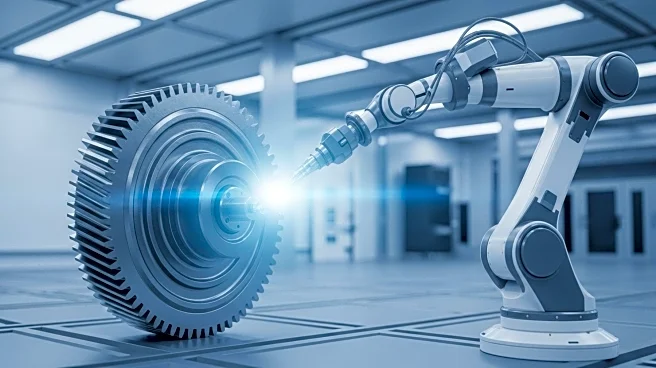What is the story about?
What's Happening?
A recent survey conducted by Industrial Equipment News (IEN) has revealed significant insights into the current state of the manufacturing industry. The survey, which gathered responses from industry professionals, focused on several key issues, including career recommendations, the skills gap, the role of OSHA, and the impact of tariffs. Notably, 78.24% of respondents would recommend a manufacturing career to younger generations, indicating a positive outlook on the industry's future. However, 63% of participants believe that the skills gap in manufacturing will never be fully closed. Additionally, 82% of respondents view OSHA as beneficial to the industry, while opinions on tariffs are divided, with 56% believing they will harm U.S. manufacturing.
Why It's Important?
The survey results underscore the complex challenges and opportunities facing the U.S. manufacturing sector. The willingness of industry professionals to recommend manufacturing careers suggests potential for growth and revitalization. However, the persistent skills gap highlights a critical barrier to achieving this potential, as it affects productivity and innovation. The positive perception of OSHA suggests that safety regulations are valued by industry insiders, which could influence policy decisions. The divided opinion on tariffs reflects ongoing debates about trade policies and their impact on domestic manufacturing, with potential implications for costs, pricing, and employment.
What's Next?
The manufacturing industry may need to focus on addressing the skills gap through targeted training and education programs to ensure a skilled workforce. Policymakers might consider these insights when crafting regulations and trade policies to support the industry's growth. The industry could also benefit from initiatives that enhance the perception of manufacturing careers, potentially attracting new talent. As the sector navigates these challenges, ongoing dialogue between industry stakeholders and policymakers will be crucial to shaping a sustainable future.
Beyond the Headlines
The survey highlights deeper issues such as the need for technological adaptation and the importance of human expertise in the face of increasing automation. The reliance on OSHA underscores the cultural importance of workplace safety, which could influence future regulatory frameworks. The mixed views on tariffs suggest a need for balanced trade policies that protect domestic interests while fostering global competitiveness. These insights could drive long-term strategic shifts in how the industry approaches workforce development, regulatory compliance, and international trade.
















